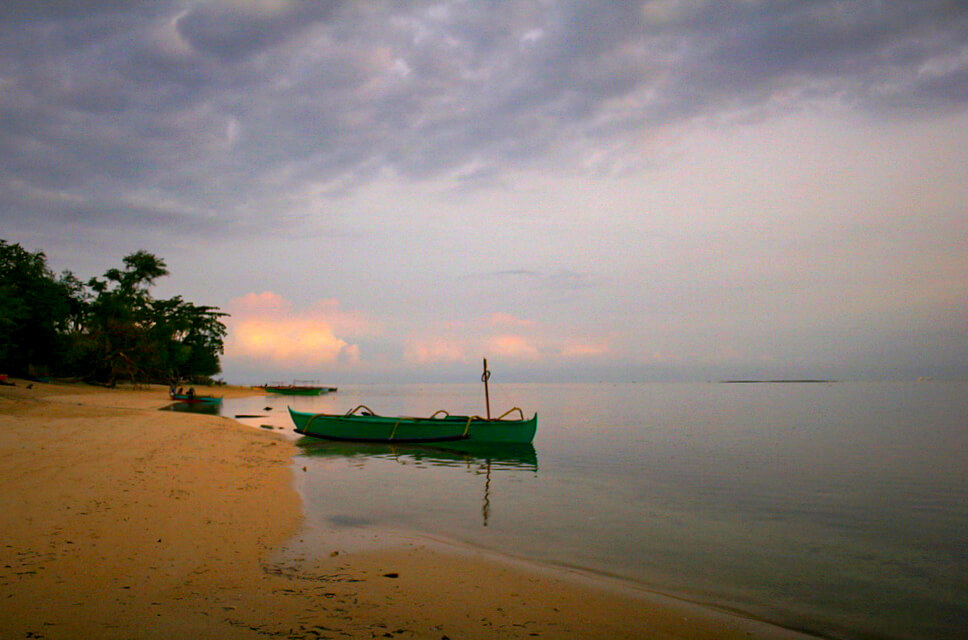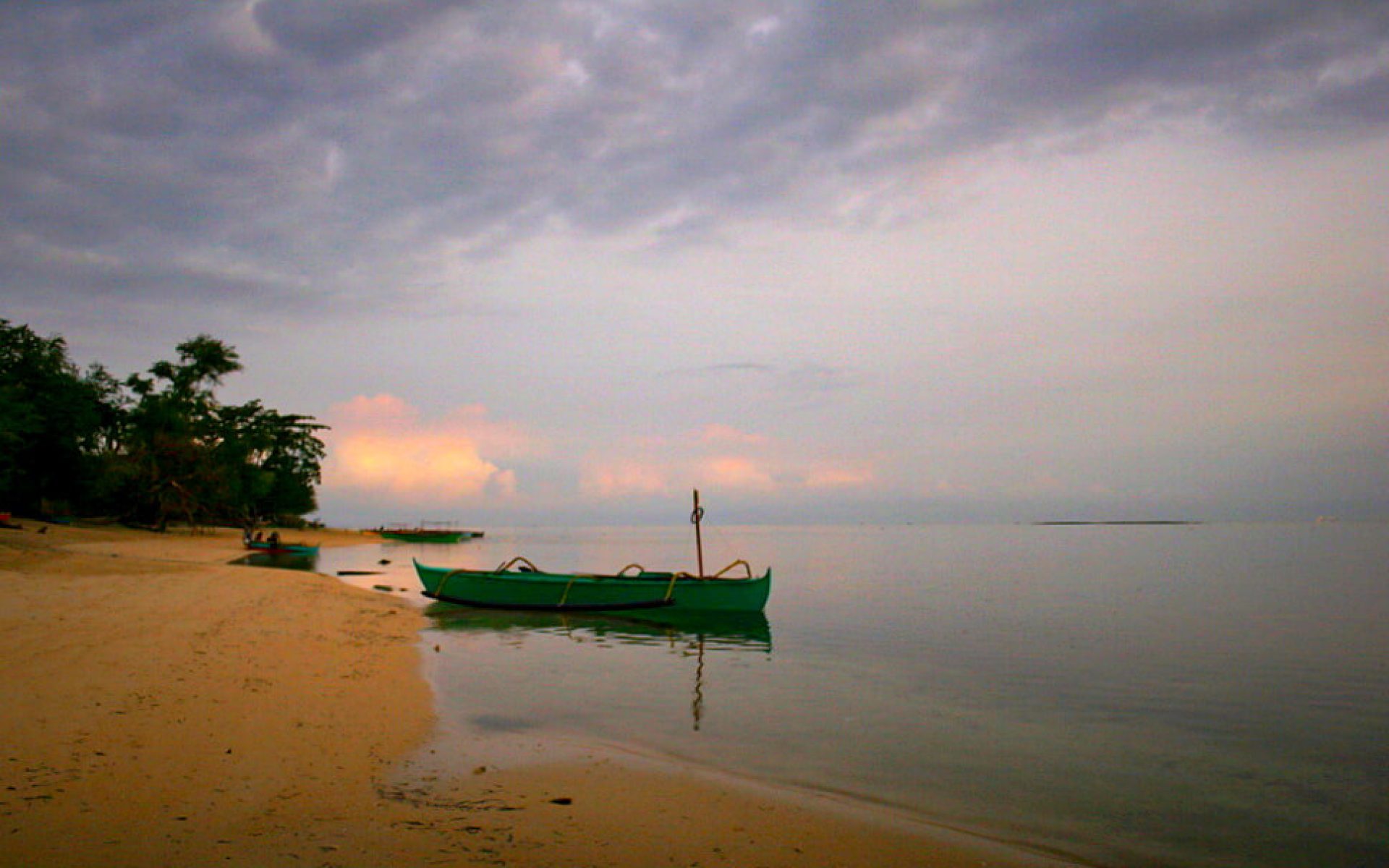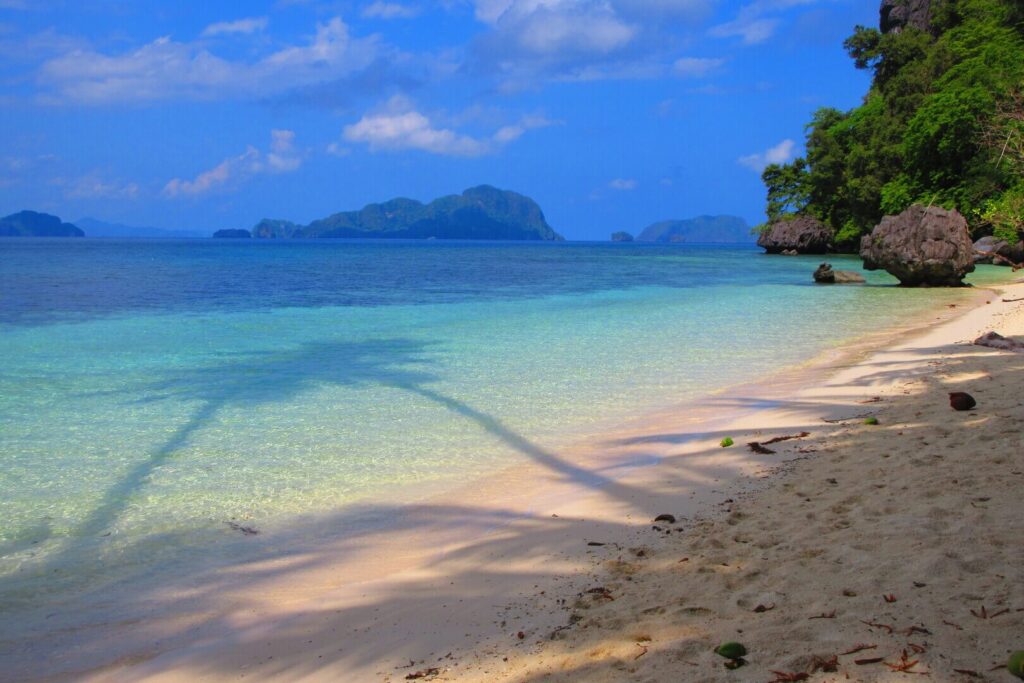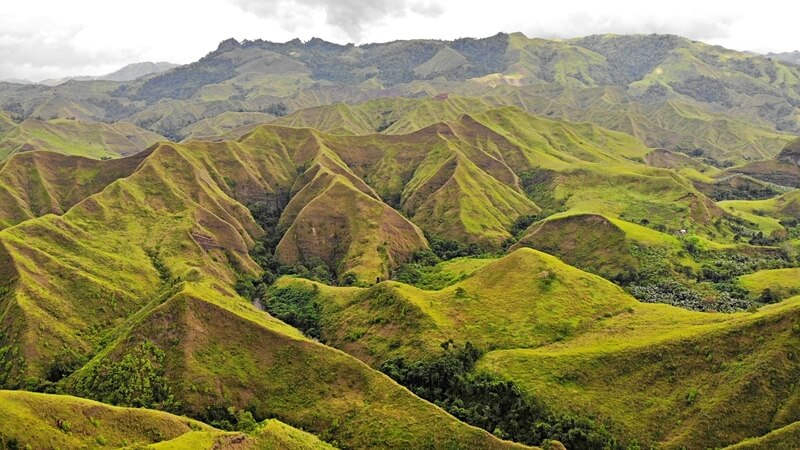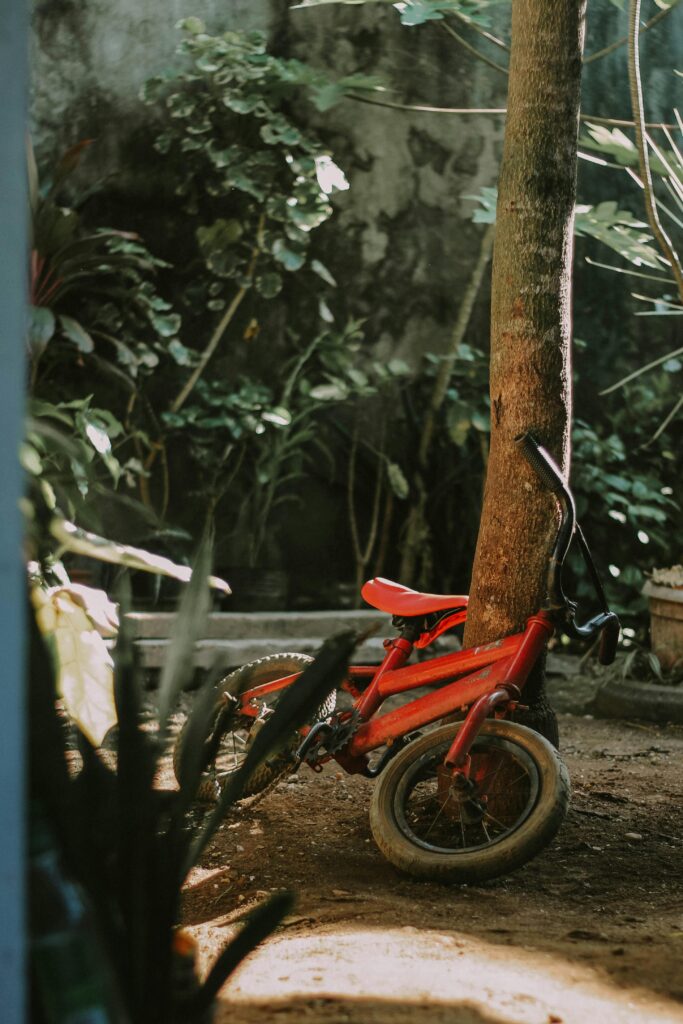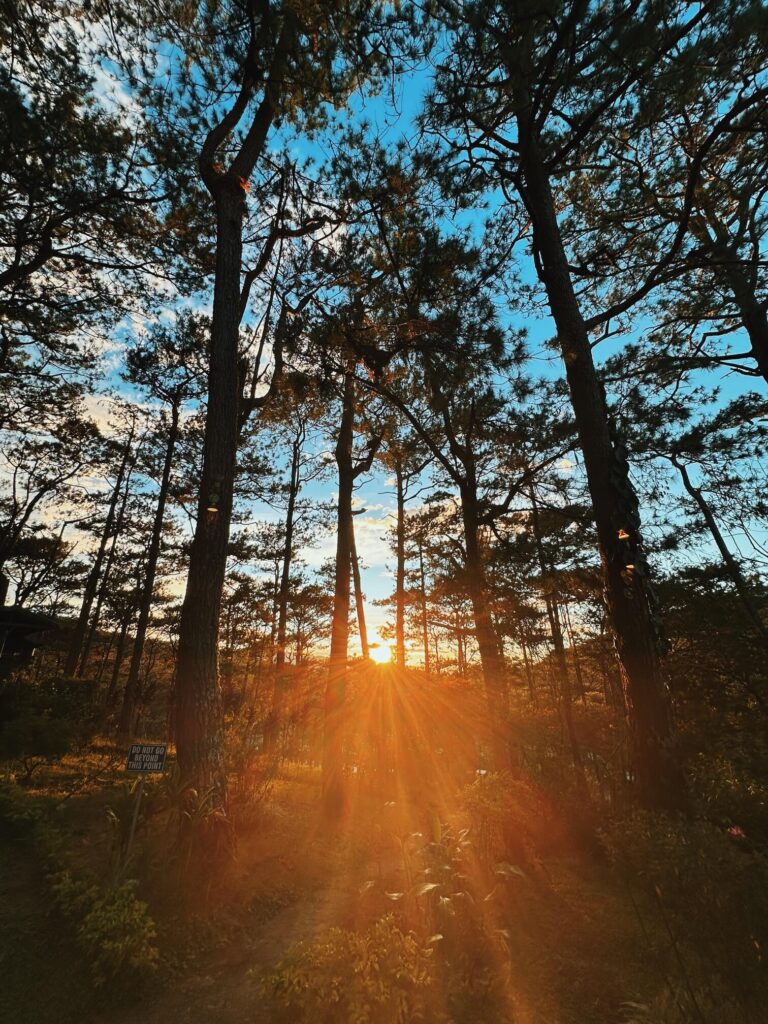Carrying a stuffed six-kilo backpack, a tattered tote bag on one shoulder, and a 14-kilogram toddler on the hip, I marched out of my mother’s home near noon. Everyone thought my daughter and I were headed home.
At the frenetic Monumental Terminal, we boarded a bus to the remote island of Magalawa in Palauig, Zambales, close to the much-disputed Bajo de Masinloc (Scarborough Shoal) in the West Philippine Sea. That week, my stepdad’s ghost showed up in every corner, alternating with marital tribulations. I was simply blending in with the noise. I needed a one-way ticket to peace.
We muscled our way through the crowded Victory Liner bus terminal in Monumento and braced ourselves for the seven-hour trip. There was the impending nightmare of tantrums, food flying midair, and all the physical and emotional weight, to lug around. But there in our little nook inside the bus, there was only calm.
Misty-eyed, my daughter and I watched the westerly spectacle of lahar and the sun sinking into the dark water. Beyond the great seas are the Zambales Mountains, all 119 of them extending hundreds of kilometers across the provinces of Pangasinan, Pampanga, Tarlac, and Bataan. They stretched endlessly, like the hours on that bus, until the highway turned pitch black and the bus’s headlights became our only guide.
“Palauig!” the conductor yelled out at a little past 7:00 p.m. We alighted at a deserted highway, with only a gas lamp flickering at either side. My daughter remained asleep in my arms, oblivious as we walked toward a lady at the shed across the street.
“Magandang gabi po (Good evening)”, I greeted.
“Magandang gabi po. Nasa Luan Port na po si Mulo (Mulo is waiting for you at the Luan Port), Ma’am,” she said. We boarded a tricycle that Kuya Mulo, Magalawa Island’s caretaker, had pre-arranged. The vehicle choked often against beds of rock and asphalt. We tilted our heads back to the swarm of stars overhead – Cassiopeia, Pleiades, Little Dipper – their sharp rays and the tricycle’s headlights, the only visible light source for the next 30 minutes. My heart pounded, expecting a hairy beast to charge at us from behind the chest-high roadside grass.
I have never traveled this far on my own – let alone with a toddler. Yet, this displacement to foreign territory felt like a humble return home, to an understanding that I am but a speck of dust in this wide, wide world.
“Good evening, Ma’am,” a voice greeted us at the port as we boarded a tiny outrigger. I could not make out who spoke or what was said. Everything was imperceptible to the eye, as the night lent itself to the sea.
We arrived at the sight of a young couple, the island’s only other visitors, snuggling outside their tent by the beach. Bone-tired, my daughter and I went straight to bed in our thatched hut.
Wary of missing the first light, I tossed and turned in bed until at 6:00 a.m., sunrays appeared. Tangerine and periwinkle fused on the horizon. Magalawa Island revealed itself for the first time. Her dusty sand a gorgeous cream hue, surrounded by low-lying trees and the neighboring islands of San Salvador and Matalvis.
Outside on a bamboo cot, we ate canned tuna for breakfast barehanded, stopping between bites to admire sea stars dotting the seabed and the sun glittering against glassy waters.
We passed by women gathering twigs for cooking and the men cleaning fishnets of debris as we walked toward a mangrove forest on the western cover of the island. Just a few meters away, flocks of egrets enjoyed their first meal of the day as we swam. I shut my eyes, joyful and content. Magalawa Island, in its charming simplicity, unmoors you from modern comforts – even daytime electricity – and affords you better appreciation of things oft-taken for granted.
We found Kuya Mulo and a fellow boatman at the neighboring hut at noon. “Nag-enjoy ba kayong mag-ina (Did you guys enjoy)? “Yes!” I giddily replied. We had a long conversation that evolved from small talk to their life on the island, to hardships and their deeper meanings.
He took a good look at our packed bags. “Uuwi na kayo agad? Pwede kayo mag-stay kahit hapon. Walang charge (Leaving so early? You can stay until dusk for free),” he offered.
I smiled. “Work’s waiting,” I replied. Our spontaneous trip, though short-lived, had served its purpose.
People travel for a variety of reasons. Some travel for business. Some, to experience a piece of the world for the first time. Others to escape routine.
Yet, a few travel in search of their souls. As the boat bobbed against the waves and trees and the pocket of sand we once stood on grew smaller, I held this certainty: In Magalawa Island, we not only recovered ours but also our place back in this crazy, chaotic, yet beautiful world.





